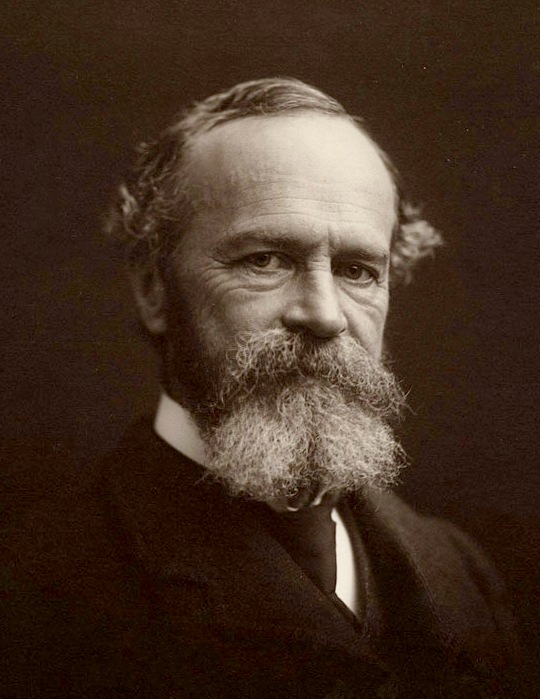“Seize the Very first possible opportunity to act on every resolution you make…”
A New Year can be an opportunity to form new, positive habits. I am inspired by this article on William James’ Treatise on Habit.
Psychologist and philosopher William James wrote Habit (public library; public domain) in 1887 — a short treatise on how our behavioral patterns shape who we are and what we often refer to as character and personality.
When we look at living creatures from an outward point of view, one of the first things that strikes us is that they are bundles of habits…
James begins with a strictly scientific, physiological account of the brain, exploring the notion of neuroplasticity a century before it became a buzzword of modern popular neuroscience and offering this elegant definition: Plasticity … in the wide sense of the word, means the possession of a structure weak enough to yield to an influence, but strong enough not to yield all at once.
He then bridges the body and the mind to shed light on how “habit loops” dominate our lives:
Any sequence of mental action which has been frequently repeated tends to perpetuate itself; so that we find ourselves automatically prompted to think, feel, or do what we have been before accustomed to think, feel, or do, under like circumstances, without any consciously formed purpose, or anticipation of results.
He eventually brings us to the question of education, whose responsibility it is to chaperone the formation of habit:
The great thing, then, in all education, is to make our nervous system our ally instead of our enemy.
He proceeds to offer three maxims for the successful formation of new habits:
- The acquisition of a new habit, or the leaving off of an old one, we must take care to launch ourselves with as strong and decided an initiative as possible. Accumulate all the possible circumstances which shall reenforce the right motives; put yourself assiduously in conditions that encourage the new way; make engagements incompatible with the old; take a public pledge, if the case allows; in short, envelop your resolution with every aid you know. This will give your new beginning such a momentum that the temptation to break down will not occur as soon as it otherwise might; and every day during which a breakdown is postponed adds to the chances of its not occurring at all.
- Never suffer an exception to occur till the new habit is securely rooted in your life. Each lapse is like the letting fall of a ball of string which one is carefully winding up; a single slip undoes more than a great many turns will wind again. Continuity of training is the great means of making the nervous system act infallibly right … It is surprising how soon a desire will die of inanition if it be never fed.
- Seize the Very first possible opportunity to act on every resolution you make, and on every emotional prompting you may experience in the direction of the habits you
aspire to gain. It is not in the moment of their forming, but in the moment of their producing motor effects, that resolves and aspirations communicate the new ‘set’ to
the brain.
Reblogged from Brain Pickings

